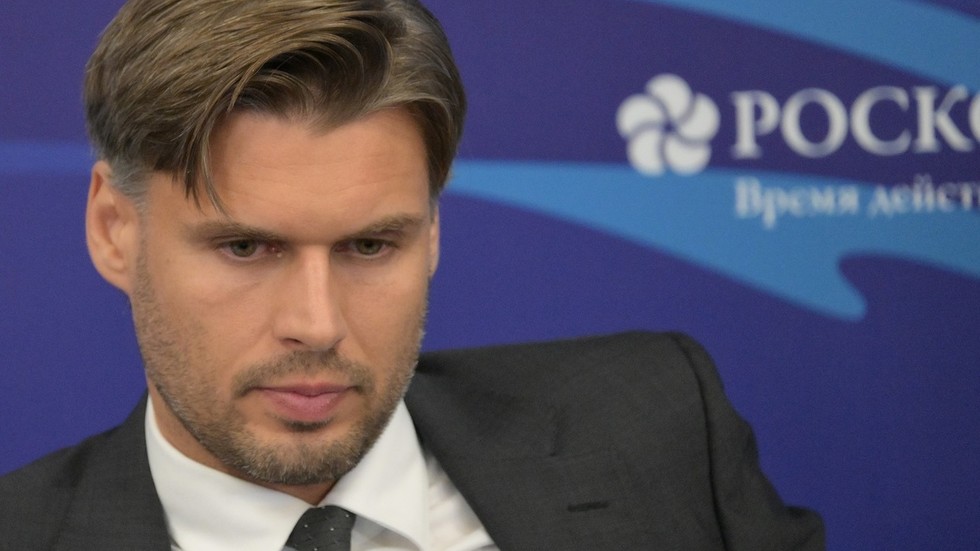A New Era in Space: Putin Appoints Fresh Leadership for Russia’s Space Program
In a surprising move, President Vladimir Putin has reshuffled the leadership of Russia’s space program, marking the dawn of what many are calling a “new era in space.” This strategic decision not only highlights the importance of space exploration in Russia’s national agenda but also raises critical questions about the country’s future ambitions in the competitive arena of space. As nations around the globe ramp up their space initiatives, this leadership change could significantly influence Russia’s position in the international space race.
The Context of the Leadership Change
The recent appointment comes at a pivotal time for Russia’s space program, which has faced numerous challenges in recent years, including budget constraints, technological setbacks, and increasing competition from countries like the United States and China. The reshuffle indicates a clear intent by the Kremlin to reinvigorate its space endeavors and regain its status as a leader in this vital field.
For decades, Russia has been a powerhouse in space exploration, from launching the first human, Yuri Gagarin, into orbit in 1961 to dominating the International Space Station (ISS) partnership. However, following several high-profile failures and a lack of innovative breakthroughs, the recent changes suggest a renewed commitment to revitalizing Russia’s aspirations beyond Earth.
New Leadership: Who’s in Charge?
Putin’s choice for the new leadership role has sparked both intrigue and optimism. The new head of the Russian space agency, Roscosmos, has a reputation for dynamic leadership and a vision for modernizing the agency. His past experiences in engineering and project management are expected to bring a fresh perspective to the organization.
- Expertise in Engineering: The new leader has a background in both aerospace engineering and management, crucial for navigating the complex landscape of space missions.
- International Collaboration: He is known to advocate for collaboration with other nations, which could open new avenues for partnerships.
- Focus on Innovation: His leadership is seen as a push towards embracing new technologies and innovative solutions that could leapfrog Russia back into the forefront of space exploration.
Implications for Russia’s Space Program
The implications of this reshuffle are profound. With the new leadership in place, several key areas are expected to undergo significant transformations:
- Enhanced Funding and Resources: The new leadership is likely to prioritize securing more funding for ambitious projects, including lunar missions and Mars exploration.
- Revitalization of Existing Projects: Ongoing projects, such as the Vostochny Cosmodrome, may receive renewed focus and resources to ensure timely completion.
- International Partnerships: As global cooperation in space becomes increasingly critical, the new leader’s openness to collaboration may lead to enhanced partnerships with other countries, potentially revitalizing joint projects.
Future Threats and Opportunities
While the new leadership brings hope, it also faces significant threats. The competitive landscape in space is continually evolving, with private companies like SpaceX and Blue Origin making remarkable strides that could overshadow governmental agencies. Additionally, geopolitical tensions could hinder collaborative efforts.
However, the opportunities are equally promising. With advancements in technology and a growing interest in space exploration among younger generations, Russia has the chance to inspire a new wave of scientists, engineers, and enthusiasts. Initiatives aimed at increasing public engagement and education in space sciences will be crucial in fostering a culture of exploration and innovation.
The Global Context of Space Exploration
Russia is not alone in its quest for space dominance. Countries such as China and India are making significant investments in their space programs, leading to notable achievements. China’s ambitious lunar and Mars missions, coupled with India’s successful Mars Orbiter Mission, highlight the shifting dynamics in space exploration.
In this context, Russia’s leadership reshuffle can be seen as a response to the emerging threats posed by these nations. By streamlining its leadership and focusing on innovation, Russia aims to reclaim its position as a leading space power.
Conclusion: A New Dawn for Russia’s Space Program
As President Putin appoints fresh leadership for Russia’s space program, the world watches with anticipation. The reshuffle is more than just a change in personnel; it signifies a potential shift in strategy and ambition that could redefine Russia’s role in space exploration. With a focus on innovation, international collaboration, and revitalization of ongoing projects, the new leadership has the opportunity to not only restore Russia’s prestige in space but also inspire future generations to look towards the stars.
In summary, this leadership change could be the catalyst Russia needs to embark on a new era in space, balancing tradition with the demands of modern exploration. The upcoming years will reveal whether this shift will indeed usher in a renaissance for Russia’s space endeavors, securing its place as a formidable force in the ongoing global space race.
See more Future Tech Daily

